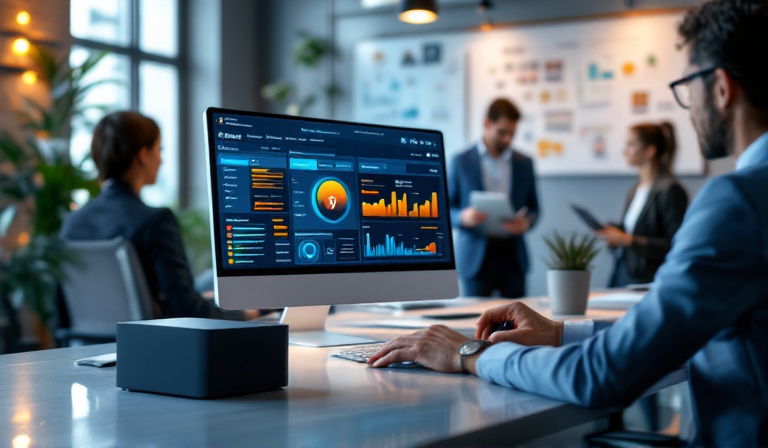
In today's fast-paced digital world, maintaining the security of your systems is not just an option; it's a necessity. As cyber threats evolve, so must our strategies to combat them. Regular security maintenance is key to ensuring your systems remain effective and protected against potential breaches.
Understanding Security Maintenance
Security maintenance involves a series of activities aimed at keeping a system secure from unauthorized access, data breaches, and other cyber threats. It encompasses everything from software updates and patches to monitoring and threat detection. But why does it matter so much?
Why Security Maintenance is Crucial
Imagine your system as a fortress. Without regular upkeep, the walls may crumble, gates may rust, and soon it becomes vulnerable to attacks. Similarly, without consistent security maintenance, your digital systems can become easy targets for cybercriminals.
Protection Against Evolving Threats
Cyber threats are not static. They evolve, becoming more sophisticated and harder to detect. Regular security maintenance ensures that your systems are updated with the latest security patches and defenses against new types of malware and hacking techniques.
Preventing Data Breaches
Data is the lifeblood of modern businesses. A data breach can lead to severe financial loss, legal repercussions, and a damaged reputation. Regular security maintenance helps ensure that sensitive information is protected through encryption, access controls, and monitoring for suspicious activity.
Compliance with Regulations
Many industries are subject to strict regulations regarding data protection and privacy. Regular security maintenance helps organizations stay compliant, avoiding hefty fines and legal issues. It ensures that the necessary security protocols are in place and functioning effectively.
Key Components of Security Maintenance
Effective security maintenance involves several key components that work together to protect your systems. Here are some essential practices to consider:
- Regular Software Updates: Keeping your software up to date is one of the simplest yet most effective ways to protect your systems. Updates often include patches for security vulnerabilities that have been discovered since the last version.
- Firewalls and Antivirus Software: These serve as your first line of defense against cyber threats. Regularly updating these tools ensures they can recognize and neutralize the latest threats.
- Access Controls: Implementing strict access controls ensures that only authorized users can access sensitive information. This includes using strong, unique passwords, and implementing multi-factor authentication.
- Regular Security Audits: Conducting regular audits helps identify potential vulnerabilities and ensures that your security measures are effective.
- Employee Training: Educating employees about security best practices can prevent accidental breaches. This includes training on recognizing phishing attempts and secure password management.
Practical Tips for Effective Security Maintenance
Implementing security maintenance doesn’t have to be overwhelming. Here are some practical tips to help you get started:
Create a Security Policy
Develop a comprehensive security policy that outlines your organization’s approach to data protection. This should include guidelines for software updates, access controls, and incident response plans.
Automate Where Possible
Automation can help streamline security maintenance tasks. Use automated tools to manage software updates, conduct vulnerability scans, and monitor network activity. This reduces the risk of human error and ensures consistent security practices.
Regularly Review and Update Security Measures
Security is not a set-it-and-forget-it task. Regularly review your security measures to ensure they are effective and up to date. This includes revisiting your security policy and making necessary adjustments as your organization’s needs change.
Engage with Security Professionals
If your organization lacks the resources for an in-house security team, consider engaging with security professionals. They can provide valuable insights, conduct audits, and help implement robust security measures tailored to your specific needs.
Encourage a Culture of Security
Foster a culture where security is a priority. Encourage employees to report suspicious activity, and reward proactive behavior. When everyone is engaged, your security measures become more effective.
Conclusion
In conclusion, regular security maintenance is essential for keeping your systems effective and secure. By understanding the threats, implementing key security practices, and fostering a culture of vigilance, you can protect your organization from potential breaches. Remember, security is a continuous journey, not a destination. Stay informed, stay prepared, and make security maintenance a regular part of your digital strategy.

